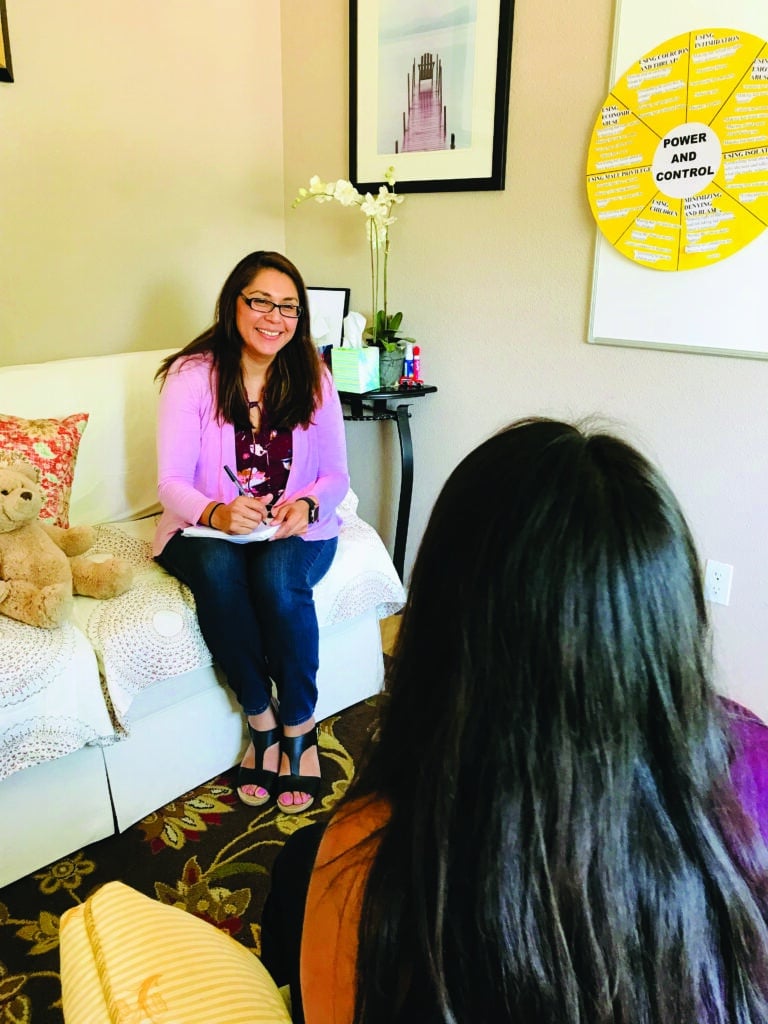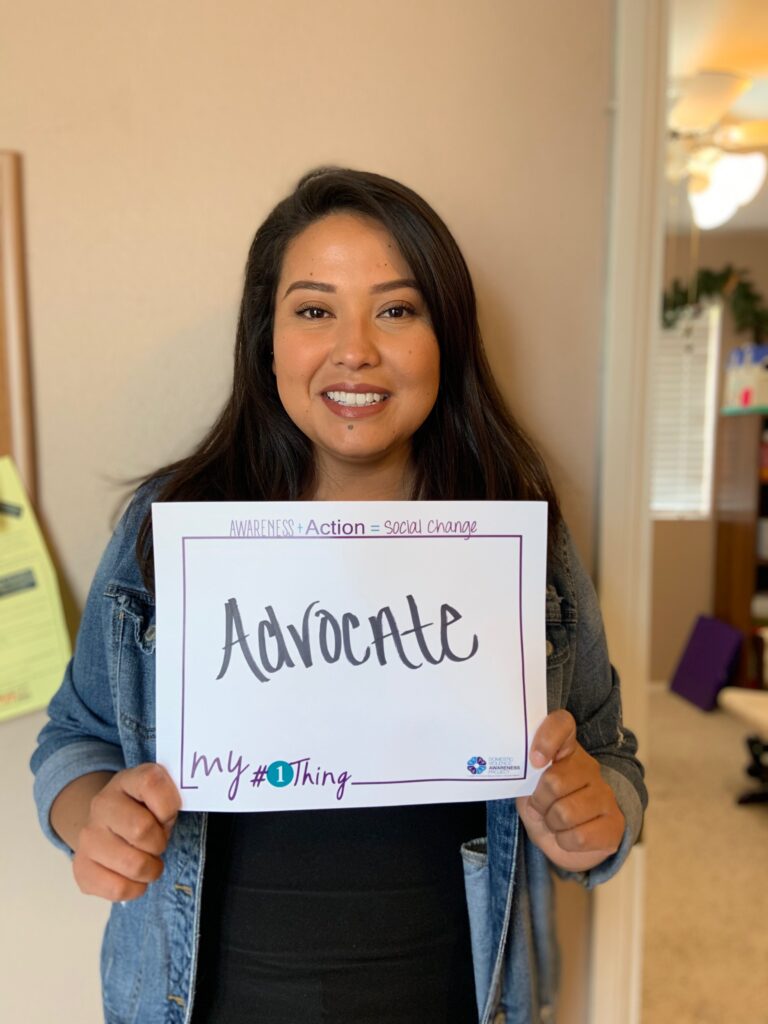BY KARA SHOEMAKER | July 7, 2020
Leaving an abusive relationship can be incredibly difficult – many survivors of domestic violence (DV) have children or pets with their abuser, and economic factors and many social ties can make it very hard to leave. Nationally, one out of three women and one out of four men have experienced DV. The COVID-19 pandemic has made finding help or leaving the dangerous situation even more challenging for victims.
“Isolation and manipulation are the main tools an abuser uses to maintain control – domestic violence is always about power and control,” said Jan Campbell, Executive Director for Domestic Violence Solutions (DVS) for Santa Barbara County. “So when shelter in place orders went into effect across the state, there was a drop off in DV calls.”
One reason for this drop off in calls is that abusers attempt to further isolate and control victims by telling them that due to COVID-19, all the DV shelters are closed and that no one is there to help. In addition, opportunities for victims to safely make a phone call or send an email are limited, and could be dangerous with the abuser at home more often.
“COVID has made it harder. Many people are now trapped at home with their abuser. Sometimes for victims, their only chance of reprieve from their abuser was when they went to work,” said Luer Yin, Staff Attorney for the Legal Aid Foundation of Santa Barbara County. “All these economic strains really impact any abuser-victim/survivor relationship. A lot of that stress and anxiety about the financial future is turned into violence toward the survivor.”
Emergency Shelter During COVID

Fortunately, organizations like DVS are doing everything they can to ensure DV survivors can get the help they need. With the spread of the coronavirus, DVS quickly pivoted to maintain safe emergency services and housing. While they did close the Santa Barbara Shelter to new clients (as it is not set up well for social distancing), DVS has been relocating new clients to the Santa Maria Shelter, which contains separate living apartments. For individuals who cannot make the transition to Santa Maria due to work or child custody issues, DVS contracts with hotels in Santa Barbara to provide shelter, thus ensuring anyone in need of emergency shelter away from their abuser is able to access it.
For DV survivors who are afraid to leave their beloved pets behind, there is some good news. In January 2020, C.A.R.E.4Paws partnered with DVS to launch a new program called Safe Haven. This new program provides temporary anonymous foster care and boarding for the pets of DV survivors. Family members and pets are often used as pawns by abusers to make sure no one leaves or speaks up about the abuse. Many animals are harmed or even killed in domestic violence disputes. And, if a pet is left behind, the likelihood of the pet being hurt – or worse – goes up exponentially. In surveys of women entering domestic violence shelters, as many as 85 percent reported that their pets had been threatened, tortured or killed by their partners.
Other critical Safe Haven collaborators include Advanced Veterinary Specialists (AVS) and C.A.R.E.4Paws’ partners in the Animal Welfare Alliance of Santa Barbara County—Animal Shelter Assistance Program (ASAP), Dog Adoption Welfare Group (DAWG) and Santa Ynez Valley Humane Society.
“Now more than ever, we need to provide a safety net for those in need of support,” says C.A.R.E.4Paws’ Executive Director and Cofounder Isabelle Gullo. “Safe Haven will protect and care for pets until they can be reunited with their loving owners. We hope this encourages community members to reach out for help and seek safety with their companion animals.”
Gullo shared that the return rate to an abusive partner can be significantly lower for women and children with animals, according to statistics from other communities that shelter pets of DV survivors. “The unconditional love, loyalty and emotional support that animals offer can give people the strength and courage they need to create change and keep moving forward,” she added.
Prior to COVID-19, C.A.R.E.4Paws only accepted clients referred to them through DVS and the Santa Barbara County District Attorney’s Office Victim-Witness Assistance Program. However, once the pandemic began affecting our county, the organization decided to remove all barriers to their services, allowing survivors and law-enforcement to contact them directly for help.
Going Virtual to Help DV Survivors:

In addition to emergency shelter services, DVS also provides a variety of other programs to help DV survivors get back on their feet, such as therapy and counseling services. With COVID-19 and social distancing measures in place, these services have been impacted, but have still shown surprisingly positive results.
“We converted counseling program to remote telehealth – and that has been one of the silver linings. We have seen a huge increase in counseling calls. Not just in shelters, but in various communities that we serve,” explained Campbell. “Going forward we would like to provide in-person services, but also continue to provide online counseling.”
In some cases a survivor has fled their home with only what they could carry. For these clients, DVS can provide tablets or phones so that they may access virtual services. DVS has also worked with Catholic Charities of Santa Barbara County for the last five years to provide survivors with food and clothing.
DVS also provides case management, and job/life skill assistance through phone and video conferencing. Their crisis and information line (805-963-4458) continues to be in operation 24 hours a day, seven days a week. DVS’s goal is to ensure that help is available for anyone experiencing domestic violence.
“We have been super busy, but we are very fortunate that we have great support from our community and donors. The Santa Barbara Foundation’s COVID-19 Response Grant allowed us to completely transition from in-person case management to telephone services, and supported clients staying in hotels. We also received additional emergency funding from state,” Campbell added.
DVS is also working with the Legal Aid Foundation (LAF) of Santa Barbara County to help DV survivors with their legal needs. LAF is a nonprofit law firm that provides Santa Barbara County residents with free legal advice, assistance with the preparation of legal documents, and representation in court proceedings on certain civil legal matters. LAF is the only provider of free legal services to survivors of intimate partner violence in Santa Barbara County. As part of a federal grant LAF received from the Department of Justice Office of Violence Against Women, LAF and DVS have partnered together to help provide holistic civil legal services of survivors/victims.
Before the pandemic, this involved in-person visits to the shelter by the LAF staff attorney, Luer Yin. Since the pandemic, Legal Aid is now providing legal services to survivors remotely.
“We didn’t want to have another burden on the survivors who are just getting acclimated to the shelter, who are scared, and they have to tell me all these intimate details of the trauma they have experienced. The idea was that I could go to them and eliminate some of those economic factors like getting gas, being able to have someone care for kids while you are talking to a lawyer. So that’s the goal. We want to eliminate as many barriers as possible,” explained Yin. “COVID-19 has made it more difficult, but we have done our best to transition to as much online work as possible. We will meet with clients over phone, Zoom, whatever platform they are most comfortable with.”
One of the primary legal issues Yin handles is helping survivors obtain civil restraining orders.
“Often times, civil restraining orders give victims a sense of peace, something that they have and hold to that says, ‘No, he’s not allowed to do this,’” said Yin. “The legal process can be traumatic for victims, but it is also empowering to be able to tell your story and have someone hear you and believe you, and then fight for you.”

DVS and LAF also work with survivors to create their own safety plan. For survivors who are forced to shelter at home with their abuser, the safety plan may include creating dummy social media and email accounts so the survivor can safely communicate with DVS and LAF staff, as well as creating safe words or actions that they can use to alert friends and neighbors that something is wrong. For example, a survivor putting a flowerpot in a window or texting a friend a phrase like “I like avocados” signals that they need help.
Domestic violence prevention is just one aspect of LAF’s work. They also provide immigration assistance for victims of crime, assistance to victims of consumer fraud, advice for tenants impacted by COVID-19, and support for fair housing and housing discrimination cases. LAF received a COVID-19 Response Grant from the Santa Barbara Foundation to support their critical legal services to low-income families, survivors of domestic violence, and others during the COVID-19 crisis.
“The community is fortunate to have organizations like DVS and LAF that provide victims of domestic violence solutions to move forward. This is especially important now with families and individuals suffering additional stressors due to shelter and place orders and the downturn in the economy,” said Pedro Paz, Director of Grantmaking at the Santa Barbara Foundation.
Organizations like DVS and LAF are committed to providing these critical services to Santa Barbara County. If you or a loved one are experiencing domestic violence and are in need of help or information, please know that our community is here for you.
Resources
Domestic Violence Solutions for Santa Barbara County website: https://dvsolutions.org/get-help/
Domestic Violence Solutions 24-Hour Crisis & Information Hotlines:
Legal Aid Foundation of Santa Barbara County website: http://www.lafsbc.org/
For more information about C.A.R.E.4Paws’ Safe Haven program, visit care4paws.org/safehaven or contact C.A.R.E.4Paws at safehaven@care4paws.org or (805) 335-7524.